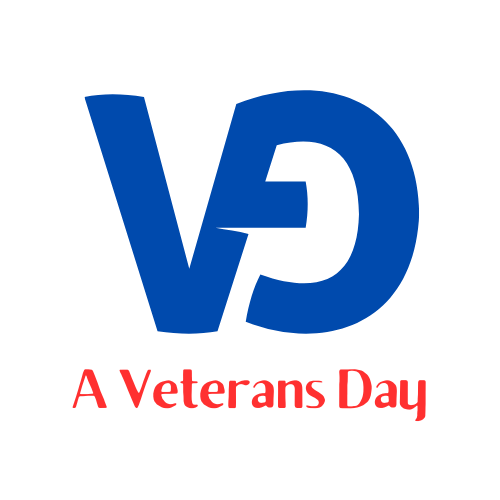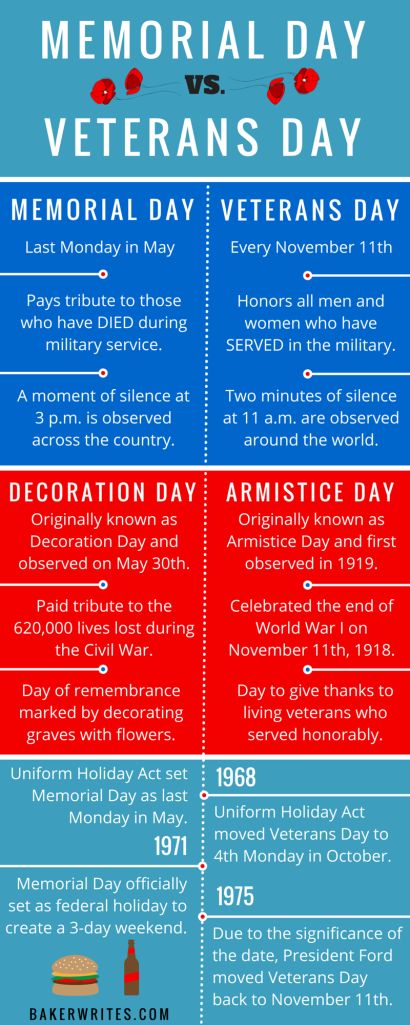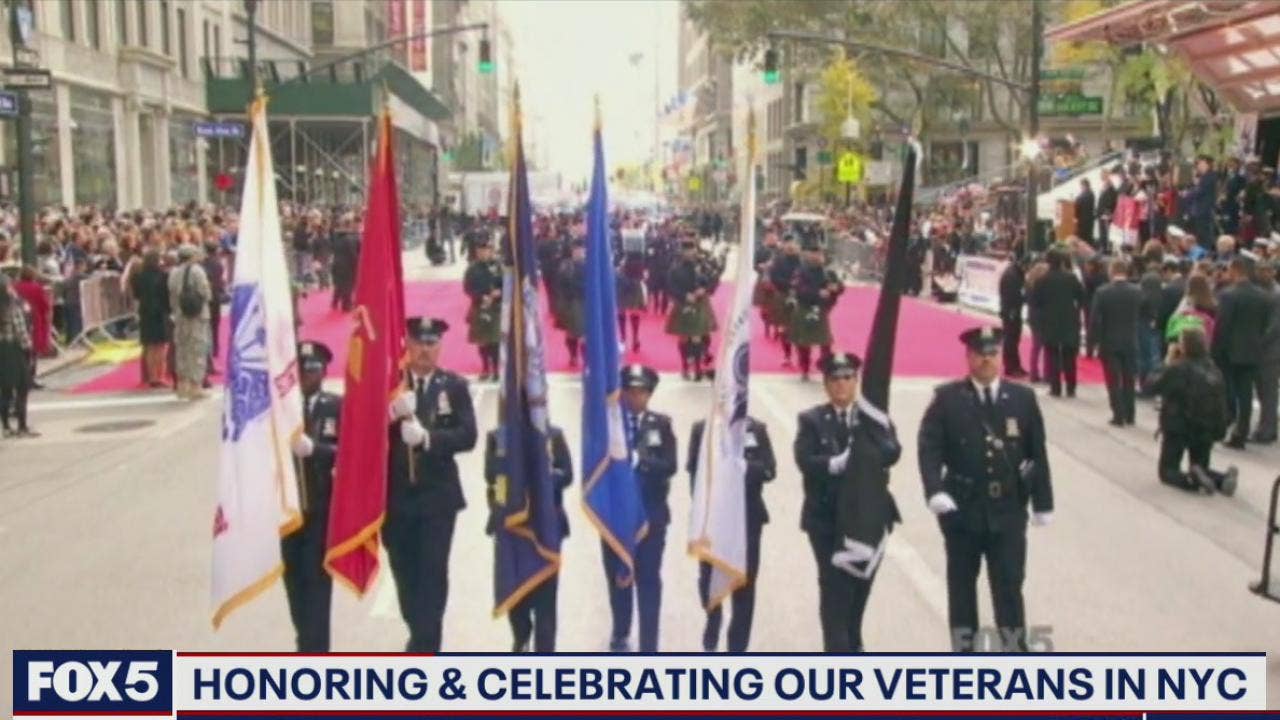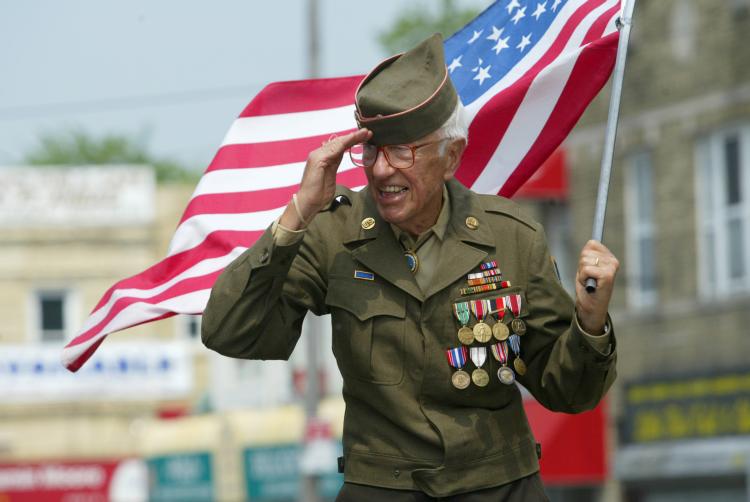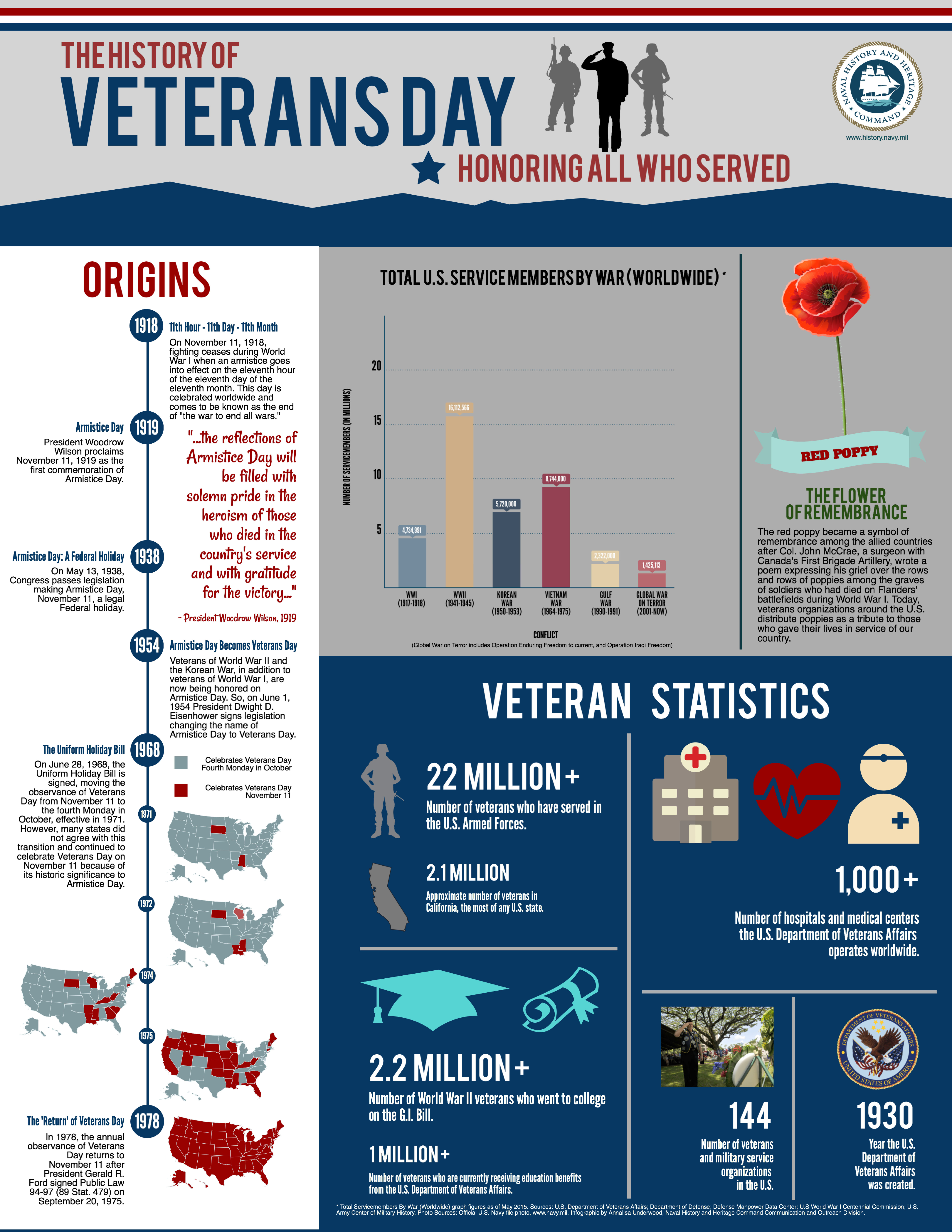Whether you’re a long-standing employee looking forward to a day off or just a curious observer, the distinction between Veterans Day and Labor Day can sometimes be a bit unclear. Both holidays hold significance in American culture, but understanding the origins and purpose of each can deepen your appreciation for the celebrations. While Labor Day acknowledges the contributions of the American labor movement, Veterans Day honors the brave men and women who have served in the armed forces. In this article, we will explore the differences between these two holidays and shed light on their historical significance in our society.
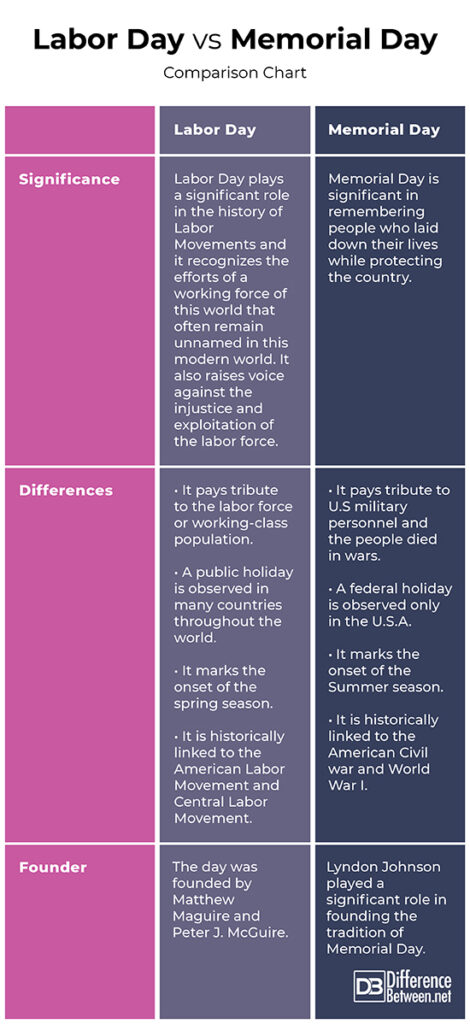
Meaning and Purpose
Veterans Day
Veterans Day is a significant holiday in the United States that is dedicated to honoring and celebrating the brave men and women who have served in the armed forces. It serves as an opportunity for the entire nation to come together and express gratitude for the sacrifices made by veterans in order to protect and preserve the values we hold dear. This day is a reminder of the selflessness and courage displayed by those who have served their country.
Labor Day
Labor Day, on the other hand, is a holiday that pays tribute to the contributions and achievements of American workers. It serves as a recognition of the immense value that workers bring to the nation’s economy and the overall well-being of society. Labor Day is a time to celebrate the dedicated efforts of laborers in various sectors, from healthcare workers to educators to construction workers, and many more. This day also serves as a reminder of the importance of fair labor practices and the need for workers’ rights.
Historical Significance
Veterans Day
Veterans Day has its roots in the aftermath of World War I, known at the time as the Great War. The armistice, which marked the end of the war, was signed on the 11th hour of the 11th day of the 11th month in 1918. This date became a symbol of hope and peace, and in 1919, President Woodrow Wilson proclaimed November 11th as Armistice Day. The holiday was later renamed Veterans Day in 1954 to honor veterans of all wars, not just World War I.
Labor Day
The history of Labor Day can be traced back to the late 19th century when the labor movement was gaining momentum in the United States. During this time, workers faced harsh working conditions, long hours, and meager pay. In response to these issues, labor unions began organizing strikes and protests to demand better treatment and improved working conditions. One of the significant events that led to the establishment of Labor Day was the Haymarket Riot of 1886, which demanded an eight-hour workday. Eventually, in 1894, President Grover Cleveland declared Labor Day a national holiday to recognize and honor the achievements of American workers.
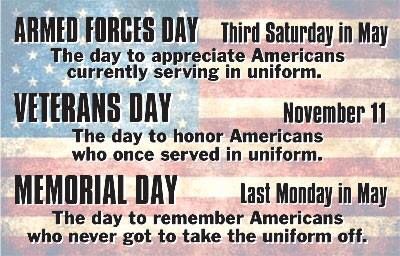
Origin and Development
Veterans Day
The origins of Veterans Day can be traced back to the Armistice Day proclamation by President Woodrow Wilson in 1919. Initially, Armistice Day honored the veterans of World War I and symbolized the end of the war that brought about peace. However, as subsequent wars occurred, such as World War II and the Korean War, it became evident that the holiday should encompass all veterans. Thus, in 1954, President Dwight D. Eisenhower signed a bill into law renaming Armistice Day as Veterans Day to honor veterans of all U.S. wars.
Labor Day
The development of Labor Day can be attributed to the efforts of the labor movement during the late 19th century. The labor movement fought for improved working conditions, fair wages, and shorter working hours. Several significant events, such as the Haymarket Riot and the Pullman Strike, highlighted the need for better labor regulations. As a result, Labor Day was established as a national holiday in 1894 to recognize the contributions and accomplishments of American workers. Over time, the holiday has evolved, and today it also signifies the end of summer and the beginning of the fall season in the United States.
Date of Observation
Veterans Day
Veterans Day is observed annually on November 11th. Regardless of the day of the week on which it falls, the holiday is celebrated on this fixed date. This allows individuals, communities, and organizations to plan and organize various events, parades, and ceremonies to honor and pay respect to veterans of the armed forces. The date, November 11th, holds historical significance as it marks the armistice that ended World War I.
Labor Day
Labor Day is observed in the United States on the first Monday in September. The choice of this date allows for a long weekend, which often includes family gatherings, picnics, and outdoor activities. By designating the first Monday in September as Labor Day, it gives workers and their families an opportunity to relax, unwind, and enjoy the final moments of summer before the fall season commences.
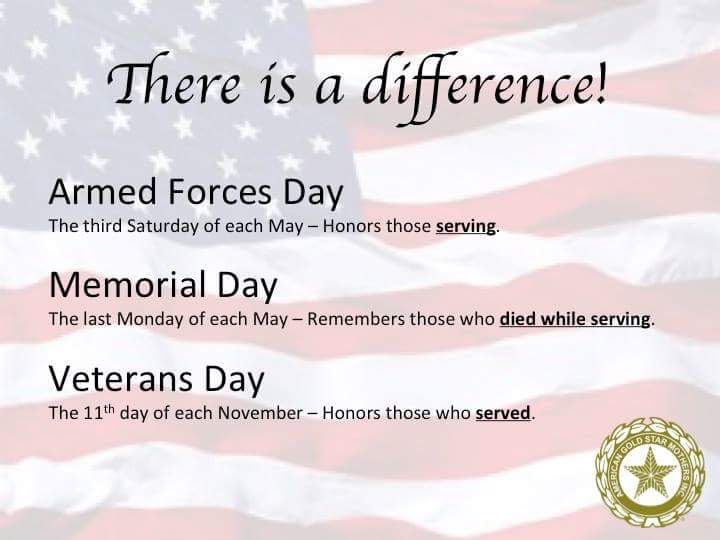
National Holiday Status
Veterans Day
Veterans Day is a recognized federal holiday in the United States. This means that all non-essential federal government offices, including post offices and federal institutions, are closed on this day. Furthermore, many private businesses and educational institutions also observe Veterans Day and provide their employees or students with a day off to express their gratitude and pay tribute to veterans.
Labor Day
Similarly, Labor Day is also a recognized federal holiday in the United States. It is considered a day off for the general population, and many businesses and organizations are closed in observance of the holiday. Government offices, schools, banks, and various other institutions typically take the day off, allowing individuals to spend time with loved ones and participate in Labor Day celebrations.
Honored Groups and Individuals
Veterans Day
Veterans Day is primarily dedicated to honoring the brave men and women who have served in the United States Armed Forces. This includes individuals who served in the Army, Navy, Air Force, Marine Corps, and Coast Guard. Veterans from all branches are recognized and appreciated for their commitment, sacrifices, and contributions to the nation’s security and well-being.
Labor Day
Labor Day, while not centered around specific individuals or groups, honors the contributions and accomplishments of American workers from various sectors. This includes but is not limited to workers in industries such as healthcare, education, manufacturing, construction, transportation, and service sectors. Labor Day celebrates the collective efforts and achievements of workers in their respective fields, highlighting the crucial role they play in the nation’s prosperity.
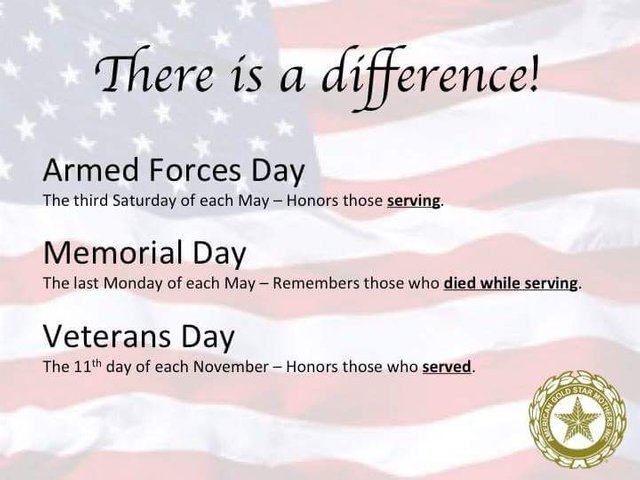
Activities and Celebrations
Veterans Day
On Veterans Day, various activities and celebrations take place nationwide to honor veterans and show appreciation for their service. One of the most prominent traditions is organizing parades that feature veterans, active-duty military personnel, and patriotic floats. These parades draw large crowds of spectators waving flags and cheering for those who have served. Additionally, communities often hold commemorative ceremonies, flag-raising events, and religious services to pay tribute to veterans.
Labor Day
Labor Day is a time for relaxation and enjoyment, often marked by festivities and gatherings. Many people take advantage of the long weekend to spend time with their family and friends, either by hosting or attending cookouts, picnics, or barbecues. Some individuals also choose to explore the outdoors, heading to parks, beaches, or organizing hiking trips. Additionally, shopping sales and promotional events are common during Labor Day weekend, offering discounts and special deals for consumers.
Symbols and Traditions
Veterans Day
Symbols often associated with Veterans Day include the American flag, patriotic colors (red, white, and blue), and the Purple Heart medal, which is awarded to those wounded or killed in action. Similarly, traditions involve the wearing of poppies, inspired by the famous war poem “In Flanders Fields,” as a symbol of remembrance. Many communities also hold moments of silence at 11 am, aligning with the armistice time of 11:00 on November 11th.
Labor Day
While Labor Day does not have specific symbols associated with it, it is often associated with the end of summer and the beginning of the fall season. Traditional activities include decorating with autumnal-themed items, such as leaves, pumpkins, and harvest-related decorations. Additionally, the weekend is often marked by the unofficial end of summer fashion trends, with individuals opting to wear white clothing until Labor Day. This informal tradition has become less strict in recent years, with fashion norms evolving.
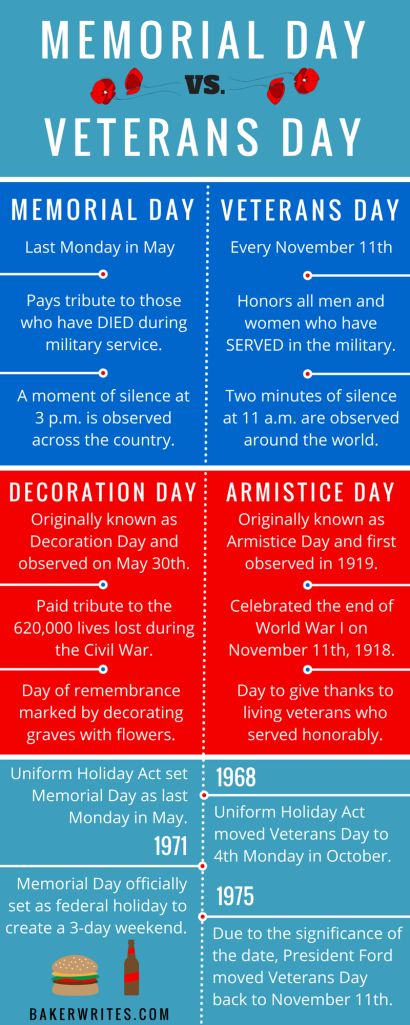
Public Perception
Veterans Day
Public perception of Veterans Day is overwhelmingly positive, with widespread support and appreciation for veterans across the United States. Americans view Veterans Day as an opportunity to express gratitude and recognize the sacrifices made by those who served in the armed forces. Communities come together to honor veterans, attending parades, paying respects at war memorials, and organizing events that allow civilians to interact and share their appreciation for their service.
Labor Day
The perception of Labor Day mainly centers around enjoying the long weekend and marking the unofficial end of summer. While the original significance of the holiday may sometimes be overshadowed by other activities, many individuals still acknowledge the importance of recognizing workers’ contributions. Better understanding of the labor movement and workers’ rights has led to a deeper appreciation for the accomplishments of American workers, adding significance to the day.
Global Observance
Veterans Day
While Veterans Day originated in the United States, it has inspired similar observances worldwide. Many countries honor their veterans or fallen soldiers on dates aligned with significant historical events, such as the end of World War I. These observances often share similarities in the form of parades, ceremonies, and moments of reflection. Veterans Day in the United States serves as a reminder of the global impact of service members and the importance of recognizing their efforts.
Labor Day
Labor Day is primarily an American holiday, and its observance is not as widespread on a global scale. However, numerous countries have their own versions of Labor Day or International Workers’ Day, often celebrated on May 1st. These holidays focus on recognizing the contributions and rights of workers, commemorating historic labor movements, and advocating for fair labor practices. While the specific dates and traditions may vary, the fundamental principles behind honoring workers remain consistent.
In conclusion, both Veterans Day and Labor Day hold immense significance in the United States, albeit for different reasons. While Veterans Day is dedicated to honoring veterans‘ selfless service in the armed forces, Labor Day recognizes the contributions and achievements of American workers. Both holidays serve as reminders of the sacrifices and dedication displayed by individuals who have shaped the nation’s history and continue to contribute to its well-being.
